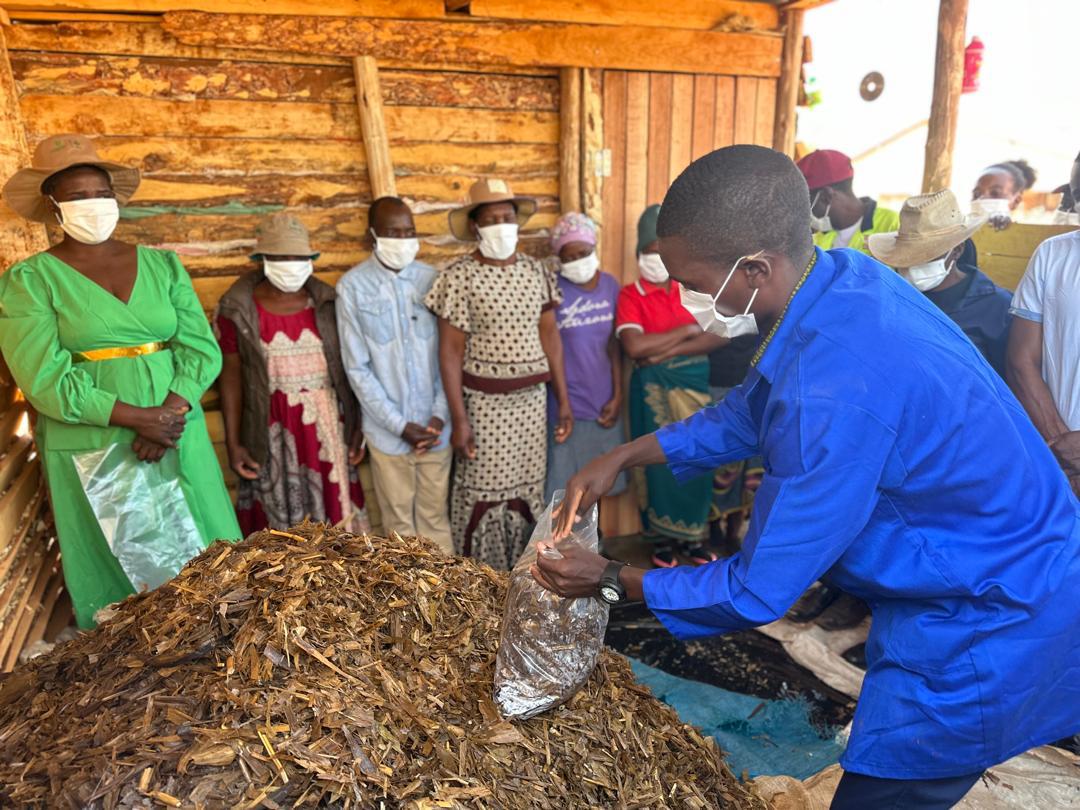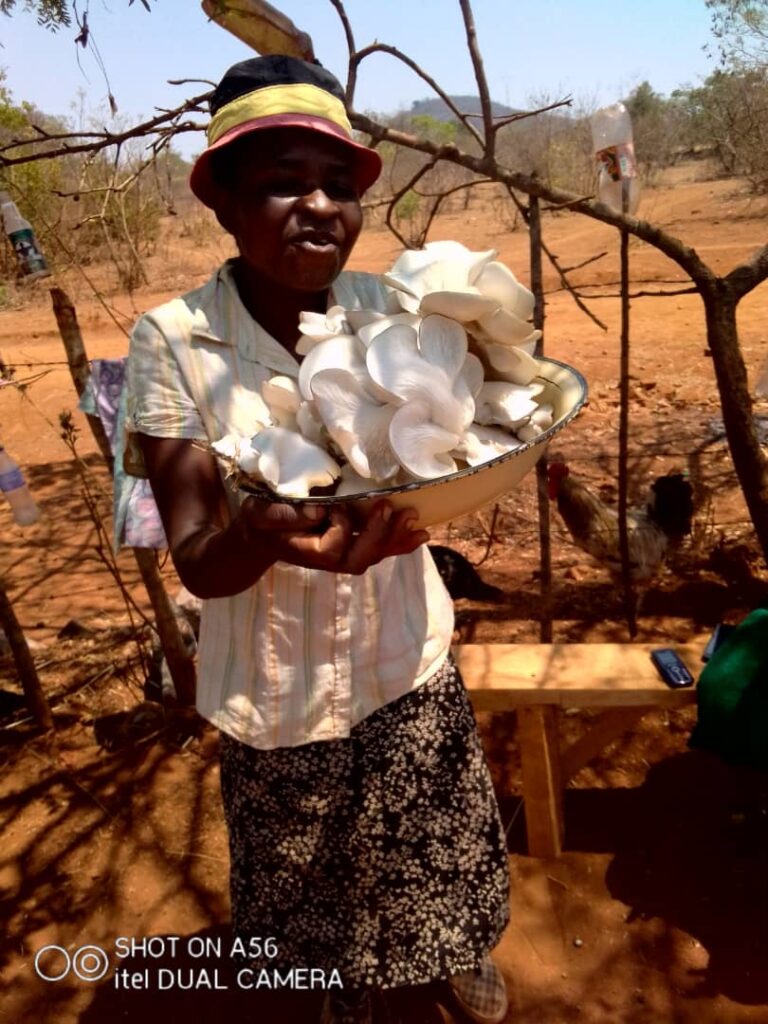Sprouting change in Chimanimani
 Mushroom farms provide a sustainable, nutrient rich food source.
Mushroom farms provide a sustainable, nutrient rich food source. October 10, 2025
By Jacqueline Tingle
In the hills of Chimanimani, Zimbabwe, change isn’t growing in the usual fields of maize, or beans, it’s sprouting in small, humid mushroom huts made from wood, plastic, grass and a lot of grit.
Here, local women and young people are turning agricultural waste into opportunity. Through the Nature Positive Food Systems (Nature+) project, led by TSURO Trust, mushroom farming is emerging as one of the area’s most promising climate-smart solutions, offering both income and resilience in a region facing mounting environmental challenges.
Mushroom farming might sound simple, but in these remote mountain communities, it’s quietly revolutionary. Farmers gather crop residues like maize stalks, wheat-straw and sawdust that would normally be burned or thrown away and turn them into fertile ground for oyster mushroom production.
“It’s a beautiful cycle,” says Johnston Ngezimana, a TSURO Trust Agriculture and Livelihoods technical officer who trains new growers. “You take what’s considered waste, and you turn it into something that feeds families, heals the soil, and generates income for people.”
Each growing cycle takes just four weeks for a farmer to start harvesting, and it will stretch up to 20+ weeks of harvesting mushrooms daily, and the results speak for themselves. Across 12 mushroom hubs in the Nemakonde landscape, mostly run by women-led groups, the hubs earned an average of $1,100 each, selling both fresh and dried mushrooms at local markets.

For women like Ever Makwinimizi from Mandima village, mushroom farming has done more than improve her diet — it’s shifted how her community sees her. “Before, we depended on our husbands for everything,” she explains. “Now, we are running our own projects, saving money, and feeding our families better.”
Through TSURO’s training, women have learned how to manage temperature and humidity, that is ideal for mycelium survival and growth. They have learned to operate mushroom dryers and keep financial records. Many now participate in Village Savings and Lending Groups (VSLGs), to pool modest savings to fund new batches of spawn and expand mushroom farming hubs.
Nutrition is another big part of the story. In many Chimanimani households, meat is expensive or scarce. Mushrooms, packed with protein and antioxidants, fill that gap. Families who once relied on one meal a day now enjoy nutrient-rich dishes that keep children healthy.
And the market is growing fast. Demand for mushrooms now exceeds supply, and TSURO’s farmers are expanding, using social media, local fairs, and community networks to reach new buyers. What started as a small experiment has blossomed into a movement, one that’s practical and profitable.
“Sometimes people think change has to be big,” Ngezimana says. “But here, it starts with a handful of mushroom spores, a little training, and people who believe they can make a difference.”
For media requests, please email Communications and Marketing Coordinator Janice Biehn at jbiehn@alongsidehope.org.
